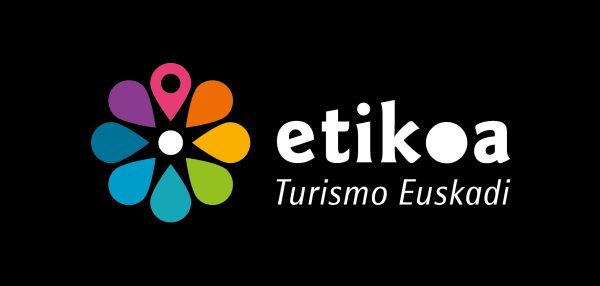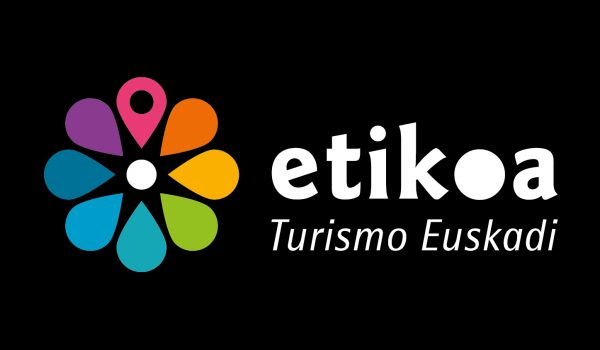Basque Tourism Code of Ethics
We signed up to the Basque Tourism Code of Ethics when the project was launched to adapt the peculiarities of the culture and environment of the Basque Country to the Sustainable Development Goals of the United Nations Agenda 2030, as well as to the Global Code of Ethics developed by the World Tourism Organization. When the Go Local project was launched in 2014, it did so with the aim of creating tourism that was responsible with our environment and our customers, respectful and beneficial to the city of San Sebastian, while offering us tour guides fair working conditions.

Our principles
Which are the principles that define this code of ethics? Let’s see!
- Respect the rights of the people: When we think about tourism, the idea that comes to mind is about relaxing, having fun and enjoying the life pleasures that other cultures offer. But a lot of us believe that it’s also a way of self discovery, as there’s no better mirror than the other, and learning thanks to the human diversity that allows us to know. Goes without saying that this can’t be done at the expense of the dignity, integrity and health of our fellow people.
- Appropriate behaviour with the workers and business owners of the sector: Sadly, tourism is a sector where a lot of workers and businesses suffer uncertain conditions, either because of predatory business models or the prevailing of big multinationals that impose harmful work models, that additionally prey on the regions where they operate providing absolutely nothing to their development and don’t contributing in any way to their prosperity. The local agents have to have the chance to develop and compete in this market, without being devoured by these much bigger foreigner agents.
- Excellence and professionalism: So that the growth of tourism is compatible with the preservation of the life quality and the capacity to keep generating wealth in the region, this has to be of quality, sustainable and accessible, but also responsible towards our surroundings and society.
- Sustainability: Planet Earth has limited space and resources, including gifts from nature that we have to fight to preserve for us and for those who will follow us. And this concerns tourism, that can be developed in a sustainable and respectful way, not as a predatory model that transforms cities and nature spaces in gigantic dehumanized altered amusement parks designed just for the enjoyment of a few at the expense of expelling the locals. In Go Local this principle is specially in our minds when we work in the streets and design our tours, as we believe in tourism as a positive force that doesn’t invade our neighbours’ daily life.
- Contribution to the understanding and respect of tourists: The tourists, that is also us when we leave home, all come with their own baggage of cultural, religious, personal and ideological conditions that are, as long as they’re not imposed, nor are damaging, as worthy of respect and consideration as our own.
- Promotion of local tradition and culture: In 1991, Peter K. Fallon, journalism professor at the Roosevelt University of Chicago, coined the term “Disneyfication” to describe the process by which a real place is deprived of its original character to be replaced by a cleaned and sanitized version of itself. A stage, not a space where the people that used to occupy it really live and develop. Protecting and promoting the real identity, real products, and real culture of the cities, towns and territories that are visited, this very hurtful phenomenon can be avoided and fought. We, the Go Local team, are all from Guipuzcoa and San Sebastian. We love our city, feel our culture and we don’t like the idea of living in a San Sebastian version of Disneyland. In our tours we highlight the importance of our area’s businesses and groups’ work, which are, after all, our neighbours and friends, and defending with honest speeches our culture and way of life.
- Preservation of World Cultural Heritage: Returning a little bit to the previously said, tourism can’t be done at the expense of cultural heritage (material or immaterial). Neither should be the driving force of its transformation to a standardized product of easy consumption.
Equality, inclusion and tolerance to diversity: It’s hard to believe, but there’s still people that seem to not understand that we live in a complex and heterogeneous world, not in a homogeneous mass where we are all the same everywhere. In the same way we must make an effort to know those who visit us, and to be hospitable despite (or rather, because of) the physical, philosophical, religious and ideological distances, our visitors must do the same understanding work when they practise tourism. The respect, friendliness and understanding only work when they are bidirectional.
Better tourism for a better world
With which goal? Easy, we look to achieve sustainable and responsible tourism, something that can’t be reached without the cooperation and shared responsibility of all agents and the society. A praiseworthy goal, and very desirable given the growing process of touristification that our city undergoes.
Right now, at the moment of writing this post, 530 organizations have held on to this code. All of us have proved to be more competitive, ethical and sustainable, and have incorporated the commitments of sustainability and social responsibility of the Code of Ethics to our work areas. For that, we followed a demanding itinerary based on the eight principles of the code exposed just above, so we can show off the flower shaped multicoloured emblem of the Code of Ethics.
Go Local already endorsed these values at the very moment of the foundation of our project, and the acceptance of these principles has just meant an institutional confirmation of our respect to said principles. We hope that with time, more and more organizations will join this responsible and sustainable philosophy.

